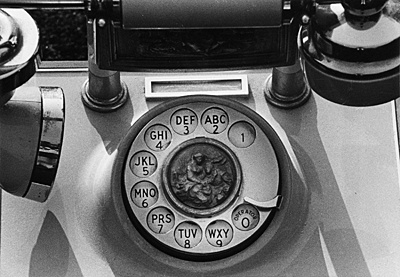All Nonfiction
- Bullying
- Books
- Academic
- Author Interviews
- Celebrity interviews
- College Articles
- College Essays
- Educator of the Year
- Heroes
- Interviews
- Memoir
- Personal Experience
- Sports
- Travel & Culture
All Opinions
- Bullying
- Current Events / Politics
- Discrimination
- Drugs / Alcohol / Smoking
- Entertainment / Celebrities
- Environment
- Love / Relationships
- Movies / Music / TV
- Pop Culture / Trends
- School / College
- Social Issues / Civics
- Spirituality / Religion
- Sports / Hobbies
All Hot Topics
- Bullying
- Community Service
- Environment
- Health
- Letters to the Editor
- Pride & Prejudice
- What Matters
- Back
Summer Guide
- Program Links
- Program Reviews
- Back
College Guide
- College Links
- College Reviews
- College Essays
- College Articles
- Back
Interpreting Silence
It was the beginning of a Saturday night, around five, and I was laying on my couch, watching tv and checking Facebook, pondering what to do later. I texted my friend Grace asking if she wanted to go out to dinner, but she didn't respond. Out of curiosity, I checked to see if she had read the text. She had, three minutes after I sent it, yet hadn't replied in three hours.
A part of me felt rejected because she didn't respond, and the read reciept made it all too clear. Read receipts are a feature that shows when a person has opened your message. If it says delivered under the text bubble, it means the person hasn’t opened the text. If it says read, it means they have opened the text; the time when they opened/read it is also shown. The times at which any text is sent appear to the right of the messages, so one can easily see the gap between when read and when replied.
The initial reaction is to question why there is a gap between read and respond. We first question the one on the other end of the text. Then, we look for the worst, see the glass half empty not half full. We assume our friend is deliberately ignoring us, and therefore question their trustworthiness and honesty when the read receipt flaunts that we are not a priority. Imagine you are talking with a friend in the hallway, say something, and get no immediate response. Now imagine you are studying with a friend, say something, and get a no immediate response. In both situations you know your friend heard you, but the difference is the circumstance (free to talk versus busy). Without circumstance, our mind creates the worst case scenario, and read receipts offer no glimpse of circumstance. Instead of thinking rationally, we make the situation into an importance contest, a game of favoritism which we are losing to something else. At a deeper level, we begin to question ourselves, start picking out our imperfections. Does she have something better to do than answer you specifically? You start to doubt yourself. Maybe there are certain traits of yours that have harmed your friendship. In reality, a friend might be in the middle of something and is not intentionally trying to create this notion in our heads, but we wouldn't know this over text. Knowing these seemingly harmless details of when a text is read is like knowing the intricate workings to a person's daily actions, and is somewhat invasive of their privacy.
Social media is already so invasive of our privacy; you can look someone up on Facebook and learn about them even if you have never met them. Read receipts take this one step further by showing us what a person chooses or chooses not to communicate at a specific moment, a newfound knowledge. Even the smartest man in the world doesn't know everything, but people strive to learn everything they can. Teenagers tell secrets and gossip constantly, but do we really want to know everything? Knowing exactly when someone read your message can warp your view of them based on a quantitative measurement of speed. This black and white measurement, time, causes us to think in black or white, not allowing for gray area, regressing us as a species in our intellectual capacity. The numbers drive our thoughts. Instead of using logic and reasoning, we let ourselves drift into a superficial level of judging a relationship based on the speed of a reply (quantitative) and not the factors that go into the response itself (qualitative), the situation behind the numbers.
In both a numerical and circumstantial way, we are not capable of breaking certain boundaries of privacy; it would make us crazy. For example, mind reading might seem desirable, but to know what everyone was thinking at all times would be a curse, not a gift. It would reveal everyone's immediate thoughts, unspoken mean comments, and controversial opinions that would cause you to hate everyone. Invasion of privacy has heightened due to advancements in technology, and this is seen in something as small as a read receipt. Read receipts only show superficial depth to a complex relationship; they show the tip of the iceberg (speed of a response) but fail to show the majority that is underwater (the explanation for the response time). Face to face interaction offers less room for misinterpretation. We can all have our own boundaries of privacy, and our relationships can be more substantial than superficial; more about what a person is saying than how fast they respond.

Similar Articles
JOIN THE DISCUSSION
This article has 0 comments.
